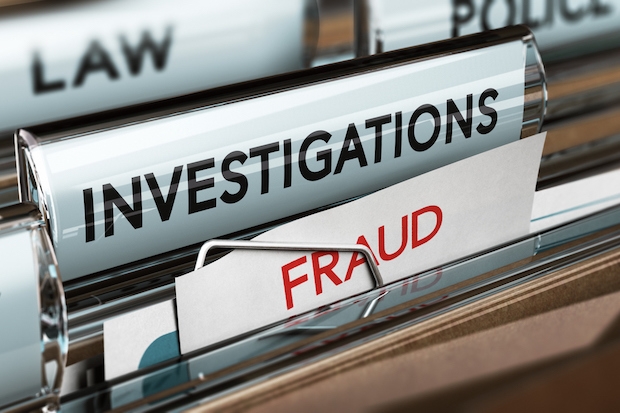Serious and organised crime, from drugs and cybercrime to people trafficking, costs the UK economy an estimated £24 billion a year. The majority of proceeds are laundered through UK banks and other regulated businesses, and includes money from international criminal activity or corruption.
Not only is money laundering a serious crime in itself, this practice plays a wider role, allowing criminals to fund and expand their operations, and financially impacting regulators, businesses and governments in the fight against it. The National Risk Assessment (NRA) goes further, stating that there is ‘a marked overlap between money laundering and terrorist financing’.
Money laundering transfers financial power from legitimate businesses and individuals to criminals, whilst undermining financial institutions and markets. The accountancy industry is unfortunately – and largely unwittingly – very much involved, as criminals seek to clean their money by concealing it within the financial system. For the victims of crimes enabled by laundered money, the effects can be devastating and lifelong, including great personal and family loss, in addition to ruined business reputations.
‘Rules and regulations can make crimes like money-laundering seem distant, and removed from everyday life. Compliance can become just a tick-boxing exercise,’ says Phillippa Foster Back CBE, Director for the Institute of Business Ethics (IBE).
To help greater understanding of the importance of anti-money laundering procedures, the legal and accounting sectors are working closely with the Government through the Home Office and the National Crime Agency’s (NCA’s) Flag It Up campaign, which focuses on the social impact of money laundering.
‘Previously bodies have looked at it purely from a regulatory perspective, but there’s a social basis for fighting against money laundering and the use of proceeds of crime. It’s a different emphasis on the socially destructive element of money laundering, rather than simply reminding people of just their obligations,’ says Adam Williamson, Head of Professional Standards for AAT (Association of Accounting Technicians).
‘I think simply introducing regulation is seen as burdensome and more red tape. If you make it a more personal understanding and narrative, then people might be willing to take the extra step and enhance their procedures and due diligence rather than doing the bare minimum.’
Greater engagement with the issue would allow the sector to be one step ahead when the next anti-money laundering regulations are introduced, he adds. The ‘Flag It Up’ campaign itself urges those in the sector to file suspicious activity reports directly with the NCA, encouraging professionals to look out for ‘some of the red flags of money laundering.’
‘These could include overtly secretive or evasive clients, the amount or source of funds seeming unusual, or odd discrepancies in client transactions or business activities. Suspicious Activity Reports (SARs) can provide real value to law enforcement in tackling money laundering and other crimes, and recovering criminal assets,’ says Ian Mynot, Head of the UK Financial Intelligence Unit at the NCA.
‘People connect with other people, and by emphasising the social impact that money laundering has, the Flag It Up campaign will help accountants see how they can play their part in combatting it,’ adds Foster Back.
What else is being done to tackle money laundering?
From an accounting perspective, there are standard procedures and rules in place when it comes to complying with anti-money laundering regulations, from having a written anti-money laundering policy and risk assessment processes in place, to flagging suspicious activity with an internal officer who may then suspend a transaction, or raise a SAR. This may provide a reporter with a statutory defence to a charge of money laundering or terrorist financing regarding a future transaction they are suspicious of, and in the 18 months to March 2017, £56,541,579 of assets denied to criminals via such ‘Defence Against Money Laundering’ SARs.
‘It’s not a whole new set of things to do; it’s things you are already doing. These [regulations] are just flags at various stages of the job to make you stop and consider whether you’ve documented what you know and done what you’re supposed to do by your professional body’s standards,’ says Steve O’Neill, anti-money laundering compliance specialist and director at the Business Tax Centre.
Updated money laundering regulations introduced in 2017 require staff to be screened before and during an appointment and should make firms assess whether staff are confident in the work they are doing.
The principles behind the new regulations aren’t different to previously, but the 2017 regulations’ depth and enforcement is, adds O’Neill. He adds that while the move towards more standard AML supervision practices, such as the introduction of Office for Professional Body Anti-Money Laundering Supervision, is welcome, it could increase the costs of this function for regulators.
With a renewed focus on the social impact of money laundering, the Flag It Up campaign and regulatory bodies hope they will continue to improve professional standards. This will help industries avoid unwittingly playing a role in criminal activity, while rooting out criminals and those who knowingly enable money laundering.
Laura Oliver is a Freelance Journalist and Former Head of Social and Community at the Guardian. A version of this article first appeared on AAT Comment.






Comments